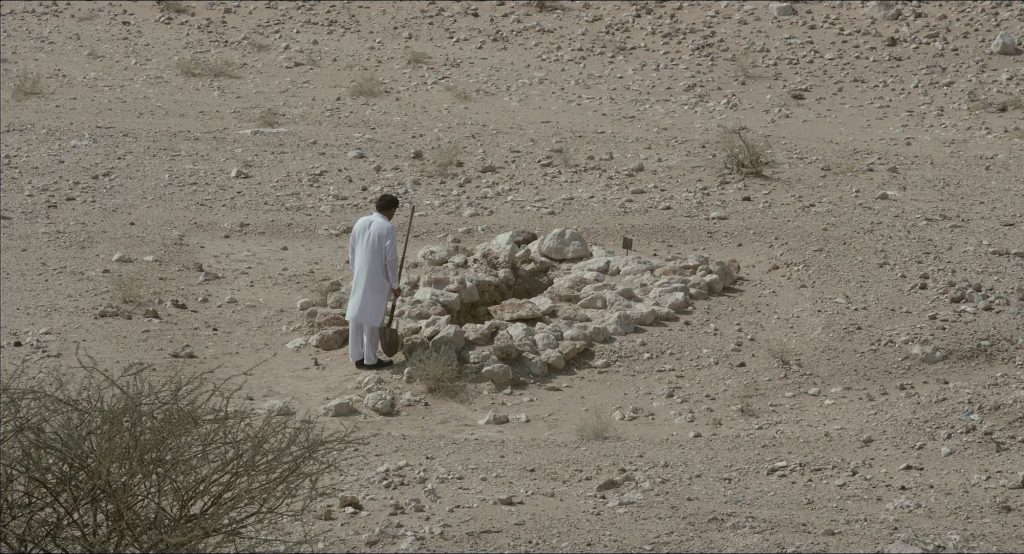
Ali Cherri, The Digger, 2015, video still
Ali Cherri, The Digger, 2015, video still

“If the necropolis is a form of display or a form of a museum, it would be the Museum of Absence.”
—Ali Cherri
The necropolis, like the museum, is for Ali Cherri a place where the politics of the dead play out as haunting images of voids and silences. Born in Beirut and brought up during the Lebanese Civil War, the experience of loss and survival in a divided city scarred by a long conflict has defined Cherri’s interrogation of the relics of the dead in search of communal anchoring of memory and historical narratives.
The Digger (2015) portrays the ritualistic occupation of Sultan Zeib Khan, the caretaker of the ruined Neolithic necropolis of Jebel al-Buhais and workman of the archaeological excavation mission. Sultan, who left his family in Pakistan to work in the United Arab Emirates for over twenty years, watches over burial grounds that have been emptied as the relics found on the site are transferred to the nearby Sharjah Archaeological Museum. His responsibilities transcend simple maintenance—the task of “keeping ruins from falling into ruins”—and become a ceremonial remembrance of absence. The excavation and relocation of the funerary remains subtends a traumatic gesture of unburial, calling on Cherri’s critical reflection on the emptiness created by disciplines like archaeology that manifest modern museums as places of classification and difference under pretenses of universality that are often laden with colonial histories. The figure of Sultan, emblematic of the South Asian worker in the United Arab Emirates, rises here to the role of mediator, negotiating between forms of conservation at odds with each other, such as the hygienic orthodoxy of museum standards and timeless cultural practices celebrating the dead. His reparative and ritual labor performs a balancing act between the spectral dimension of thousand-year-old tombs and that of museum artifacts haunted by their own self-reflection in an empty grave.
Ali Cherri, The Digger, 2015, video still